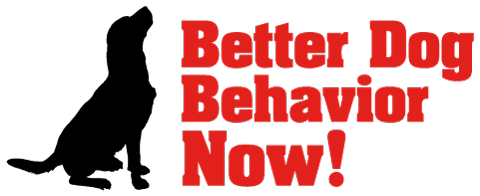Dogs Are A Gift!
Dogs are spiritual beings. They are given to us as a gift. These loveable creatures were at mankind’s side throughout history, from our cavemen era to the age of civilization. What makes our relationship with dogs special is not just their playful character. Sometimes, it is also in how we train them to modify their behavior. After a hiatus, Doug Ponyter returns to share some quick tips on how to handle dogs in the most precious way, and what to do when they behave not the way you like them to behave. He shares a clicker training technique that can make dogs less aggressive at the sight of other dogs, a method that requires patience and persistence.
—
Listen to the podcast here
Dogs Are A Gift!
I am the owner of Better Dog Behavior Now. That is a business here in Central Virginia. I specialize in solving canine behavior problems. I use positive reinforcement, marker training, and behavior modification. I always say that there is no canine behavior problem that doesn’t also involve a human problem. What I do is help dogs. I train dogs and people to balance their relationships so that we have a better relationship between the human and the dog.
I said to one of my clients, “The dog is usually pretty easy. It’s the humans that are more problematic in this equation.” I work a lot with people, helping them and teaching them to learn how to work with their dogs to modify their dog’s behavior. This training and solving behavior problem business is one that I’ve been in for years now. This show has been going on. I have to be real with you on this particular episode. They have been dropping every two weeks. It has been a while since a new episode has dropped so I’m late. I have to tell you why.
I’ve had an injury, a pinched nerve. It has been painful, quite frankly, to do the show. I haven’t done this show for quite some time. My apologies to you for that. I want to get back into this, get going again, and hopefully give you some stuff that will help you with your dog. For this episode, I want to focus on not specific training issues but a train of thought as opposed to actual training or a way to think about the relationship that you have with your dog that can possibly help you see things in a little bit of different light and become the foundation for creating a better relationship with your dog.
If you read other episodes, there are lots of information in there about what you can do in terms of dealing with behaviors and how you can work to make those better. This session is going to be in a way that you can think about the relationship with your dog. What I like to tell people is that dogs are spiritual beings. I hope that’s not too far out there for you but if it is, I’m sorry. That’s what I see. Dogs are spiritual beings that are given to us as a gift. Think about that. Dog spelled backward is God. I believe that dogs are a gift from God that is sent to help us.
You can look throughout the history of humankind and dogs have been there to help us civilize the world. In one of the earlier episodes, I made mention of a study I read that showed that dogs may have been one of the prime factors in helping us transition from crawling around in caves to building a society. The help that they provided us in terms of hunting, companionship, and partnership in doing that work allowed human beings to elevate above the caveman stage.
Dogs have been a gift to us since the beginning of time. I would like you to think about your dog that way, “My dog is a gift.” Some of you have dogs that don’t behave the way you would like them to behave. Sometimes it doesn’t seem like you have a gift in front of you but oftentimes, the solving of the problem becomes the lesson itself. I have folks with dogs that have all kinds of aggression issues or reactivity issues. Reactivity is probably more accurate for the majority of the stuff that I see.
I do see some aggressive dogs, and I do work with aggressive dogs but most dogs that seem aggressive are reactive, at least the ones that I work with. What I see is the opportunity for the human owner to work on patience, being dedicated to doing the actual exercises with his or her dog, and seeing the progress along the way. We want problems to be solved immediately. A lot of times, these behavior problems that I work with aren’t solved immediately but they’re solved in stages. It takes patience on the part of the human to do that work and have the results with the dog.

Spiritual Beings: Dog owners want to solve problems with their pets immediately. But most of these problems are solved in stages, and it takes patience on the part of humans to gain the best results with their dogs.
One of my best examples of that is a client I had that had a Great Dane that was very reactive to other dogs. She wanted to get other dogs. She had been attacked by a dog when she was a puppy. The exercise that we did was one that’s pretty common. Engage-disengage is what that exercise is called. We had to desensitize and counter-condition this dog and start that engage-disengage exercise from quite a distance.
The way you do it is as soon as the dog in question sees a dog in the distance, you click and treat it immediately before the dog can react. What you’re effectively doing is clicking for a polite look. If you have a reactive dog, you have to be far enough away that your dog can notice the other dog without having a very quick reaction so that you have time to get a click and a treat in. It has to be a high-value food treat.
What happens is that exercise starts at a great distance. There are lots of clicking and treating. When your dog looks at another dog and you click and treat, your dog takes the treat from you and then looks at the dog again, you click and treat again. You may do that 20 or 30 times in a short period. You have to stay at a great distance at the start so that your dog doesn’t react. If you’re too close, then the reaction will be too strong, and we’re not going to be able to make any progress but once we start to desensitize at that great distance, we can gradually move the dog a little bit closer.
This client of mine learned how to be very patient with her dog. We worked with her dog at a distance of somewhere close to 50 yards. That’s how far away we had to start for her to view a dog and be able to see the dog without having a pretty violent reaction. Once we got her desensitized at that distance, then we could move her gradually closer. It took eight months of work.
Every time she took her for a walk, she would have a treat bag full of treats and she would have her clicker. Anytime she saw her dog see a dog, she would click and treat. There were setbacks along the way but she was consistent with the work. She worked every day on this exercise. She did not take her dog out for a walk that she didn’t do the exercise. After about six months, the reactions to other dogs were starting to go down to the point where it was entirely manageable on a walk.
The dog was a Great Dane. Her name was Ada. Ada passed away in 2022. After about the eight-month mark, she could walk Ada. Ada could see a dog from 10 to 15 feet away and wouldn’t react at all. She would look at her owner, get a click and a treat, and go walking along her merry way. It was a great lesson for her owner in patience and persistence. She did a great job of it but it was also building a relationship and a partnership with her dog. It was something that helped the dog and her owner.
It was wonderful for me to see the progress that her owner made and the dog made over eight months’ time. It was a gift. Her dog was a gift and a gateway to a different way of looking at things, a way to be patient, and a way to work through frustration, get to the end, and get to a good result. It is something that her owner can take into other areas of her life.
I want you to think about your dog that way and realize your dog is a gift. The problems that you may be encountering and the things that you need to overcome are also a gift. I encourage you if you’re having behavior problems with your dog to find someone in your area who does behavior modification. Find someone in your area who uses positive reinforcement and marker training. If you’re not sure what marker training is, go back to my episode called The Magic of Markers.
Your dog is a gift, just like the problems you are encountering and need to overcome. Click To TweetFind someone in your area who does behavior modification and uses marker training and get to work with this trainer that you find. Hopefully, you can find someone that you get along with and you feel good about, using positive reinforcement, and behavior modification. Work through the issues with your dog and be patient. Look at it as a gift and an opportunity to get better as an owner and help your dog get better and more confident as a dog.
This is a short episode. I’m getting back in. My apologies for being absent because of the injury but I’m back. Hopefully, this episode has helped you think a little bit differently about your dog and maybe the behavior problem that you’re dealing with. I appreciate your time. I’ll be back with another episode and we will talk to you then.
Important Link
- The Magic of Markers – Previous episode

You must be logged in to post a comment.